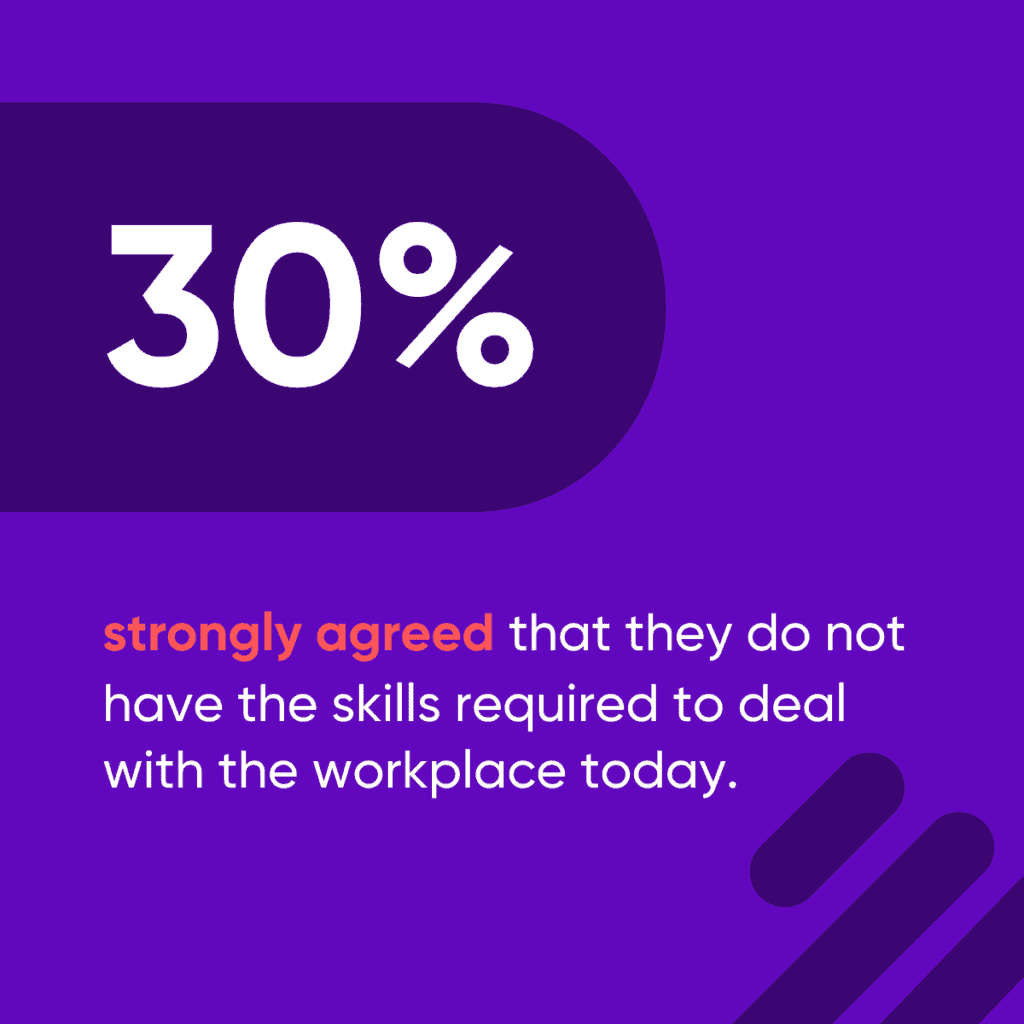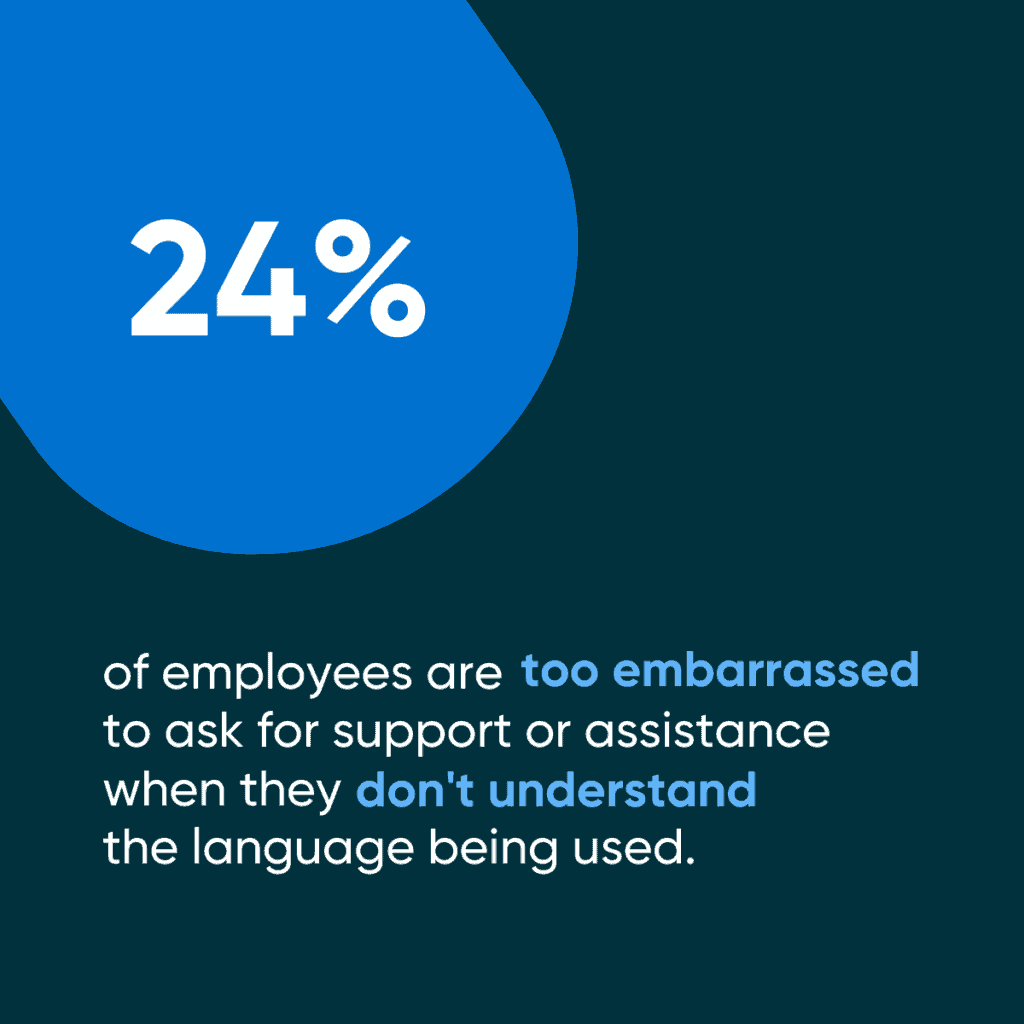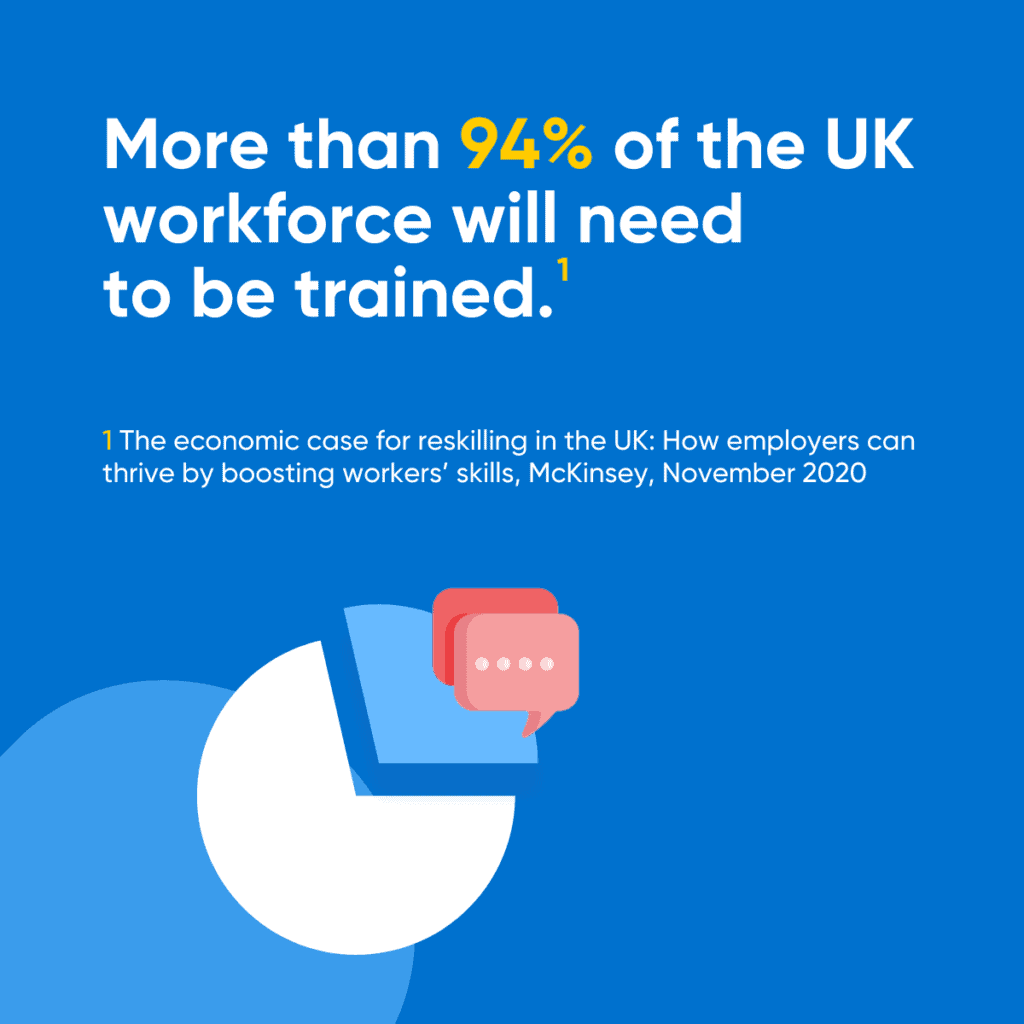It’s little wonder that with the onset of the 2020 pandemic and its repercussions including the great resignation and the mass adoption of remote work, the landscape of work has forever changed. With more people jumping into entirely new careers and a digital acceleration like never before, it’s perhaps no surprise that the UK has reached a critical juncture when it comes to skills within the workforce:
“Only three of the ten skills the World Economic Forum predicts businesses will require by 2025 are confidently possessed by more than half of UK workers.”
The UK Skills Crisis, 2022
The question many are now asking is; to what extent will the worsening UK skills gap hold the country back and what can be done to solve it?
In our latest white paper, The UK Skills Crisis, 2022, we not only delve into these issues further but also outline the fundamental challenges surrounding this topic and identify the core means of solving it. Read on for a taste of the latest Questionmark report below.
What are the modern skill gaps among UK workers?

As outlined in detail in Questionmark’s latest report, the lack of modern skills among the UK workforce is not only significant but vastly underestimated by those involved. Not only do employees frequently fail to recognize gaps within their own skill set, but so too do employers when it comes to offering the necessary training.
One example that has come up time and again during the wider debate of the UK skills crisis is the specific shortages found in the tech space, and it’s one supported by the latest Questionmark research. Of those surveyed, a mere 13% believed they possessed technology design and programming skills, a shocking finding given the acceleration and presence of this industry as a modern avenue of employment.
What are the barriers to closing the modern skills gap?

One of the key barriers to solving the UK skills crisis, according to the latest white paper from Questionmark, is jargon. The proclivity of modern businesses to engage in the use of buzzwords and jargon has created a situation in which employees not only lack a core understanding of their responsibilities but often feel pressured to hide it.
One example is the tendency for companies to use the phrase “big data” in their job descriptions, despite the UK Skills Crisis 2022 finding that 31% of respondents find this phrase confusing. And this isn’t an isolated case:
“Despite being a common requirement in job specs, just 22% of respondents identified as a “strategic operator”. Yet, when clearer language was used, more than double (46%) considered themselves capable of setting objectives and working toward them.”
The UK Skills Crisis, 2022
More problematic still, as mentioned, is that many workers feel the need to hide this lack of understanding, further compounding the problems. In fact, a huge 27% of respondents reported that they assumed the problem was with them as everyone else seemed to understand the language being used.
How can robust training and assessments solve the UK skills crisis?

The key finding of the Questionmark white paper is that for the UK to have any chance of overcoming the ever-widening skills gap, it will need to adopt new and thorough training and assessment opportunities. Not only to identify those skills that are missing but to upskill and retrain the workforce for a future-proofed economy.
Moreover, to act upon assessment outcomes, employers must ensure that training and assessments are inclusive, fair, accurate, and defensible against cheating.
Often, even when businesses do engage in training and assessment endeavors, they are found to be too generalized or allow too much room for cheating.
With the right learning tools, companies can not only improve the quality of hire (after implementing assessment technology, 76% of corporations have seen an increase in the quality of hire) but also increase revenue, reduce risk brought about by employee misunderstanding and increase product expertise.
In short, the UK must train to change. Without a significant effort to commit to training, the UK economy, as a whole, will suffer, with businesses struggling to remain anywhere close to competitive.
For the full story, download our latest white paper: The UK Skills Crisis, 2022
For more information on how Questionmark can help your businesses shrink its skills shortage and weather the future of work, book a demo and find out about our assessment platform and services today.